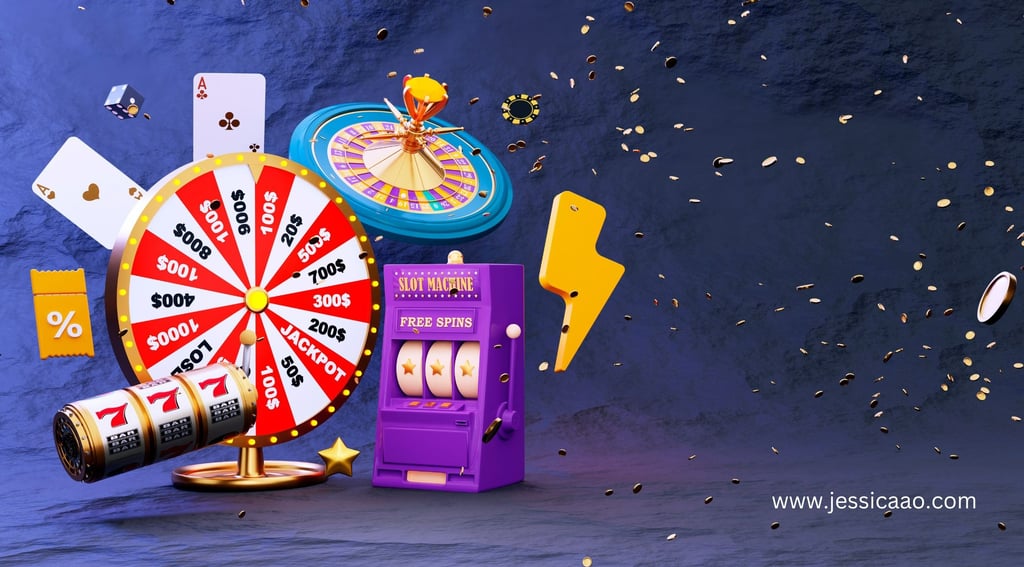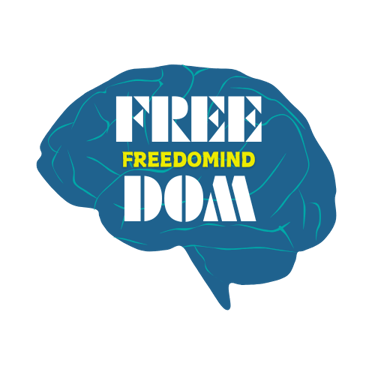Break Free from Gambling Addiction
Break free from gambling addiction by rewiring your brain’s reward system. This guide offers practical, science-backed strategies, to help you regain control and build lasting freedom.
MENTAL HEALTH
Jessica Ao | Hypnotherapist & Nutrition Coach
7/5/20255 min read


For some, gambling is just a form of entertainment. For others, it becomes an exhausting cycle of highs and lows—one that quietly takes over finances, relationships, and emotional wellbeing. If you’ve ever promised yourself “just one last time,” only to find yourself caught in the loop again, know this: it’s not simply about willpower. It’s about how your brain has been rewired.
Science shows that gambling addiction is deeply linked to how the brain’s reward system functions. When someone with a gambling problem experiences a “near win,” their brain reacts as if they’ve actually won, releasing dopamine—the feel-good chemical that reinforces habits. The good news? Thanks to neuroplasticity, the brain can change. You can train it to respond differently.
This article explores how gambling affects your brain and offers evidence-based tools to help you rewire your reward system—so you can break the cycle and reclaim your life. Whether you’re struggling yourself or supporting someone who is, you’ll find this guide a helpful and practical starting point.
How Gambling Hijacks the Brain’s Reward System
When you gamble, whether it’s spinning a slot machine or placing a bet, your brain releases dopamine, triggering a temporary sense of excitement or relief. But in people struggling with addiction, this reward system becomes overly sensitive and imbalanced.
Research shows that the brains of problem gamblers react intensely not just to actual wins, but even to near misses—fooling the brain into believing success is just around the corner. This illusion feeds the cycle of chasing losses and repeating risky bets, often without realizing how deep you're in.
Why “Almost Winning” Keeps You Hooked
Ever landed two matching symbols on a slot machine and felt the thrill of nearly hitting the jackpot? That moment—that “almost!” feeling—lights up the same parts of your brain as an actual win.
It’s one of the brain’s cruelest tricks: interpreting a loss as a signal to keep going. This psychological trap is one of the most powerful forces behind gambling addiction, reinforcing the urge to try again… and again.
How to Rewire Your Brain and Regain Control
Your brain is not broken—it’s just been trained in a way that no longer serves you. Fortunately, the same mechanisms that created this loop can also help you change it. Here are practical, science-backed strategies that can help you shift your brain’s reward system away from gambling and toward healthier sources of pleasure and satisfaction.
Practice Self-Hypnosis: Interrupt the Habit Loop
Self-hypnosis can be a powerful tool for accessing the subconscious mind and reshaping your automatic responses to gambling triggers like boredom, stress, or loneliness.
Notice your triggers: Journal when you feel the urge to gamble—what’s happening around you, and how you’re feeling?
Use daily affirmations: Spend a few quiet minutes each day with your eyes closed, breathing deeply, and repeating statements like: “I choose to find joy in ways that support me.”
Repetition rewires: The more often you practice, the more your brain learns to respond in healthier ways.
Build Mindfulness: Pause Before the Impulse
Mindfulness trains your attention and helps you stay in the present moment, so you can pause before acting on the urge to gamble.
Breathe with intention: Set aside 5 minutes daily to focus on your breath, anchoring your mind when emotions rise.
Scan your body: Gently check in with each part of your body—tight shoulders, a clenched jaw—often signal unspoken stress or urges.
Use your senses: When cravings hit, look around. Notice 5 colors, 4 sounds, 3 textures. Mindfulness brings you back to now.
Nourish Your Brain: Food, Sleep, and Mood
Gambling cravings are strongly tied to dopamine levels. The way you eat and sleep plays a crucial role in balancing your brain chemistry and emotional stability.
Balance blood sugar: Avoid high-sugar and refined carbs. Choose fiber-rich veggies, whole grains, proteins, and healthy fats to stabilize mood and energy.
Get your B vitamins: Foods like spinach, eggs, and brown rice support your nervous system and improve resilience to stress.
Prioritize quality sleep: Lack of rest disrupts your brain’s reward circuitry, making it harder to resist impulsive behavior. Stick to a regular sleep schedule, and minimize screen time before bed to help your brain recover its natural rhythm.
Create a Support System: Don’t Go It Alone
Change becomes more sustainable when you’re not doing it by yourself.
Join a group: Support communities like Gamblers Anonymous provide connection, accountability, and hope.
Tell someone you trust: Opening up to a friend or family member creates a safety net and helps reduce secrecy or shame.
Work with a professional: Therapists trained in addiction recovery and hypnotherapy can guide you through personalized strategies and emotional blocks.
Replace the Rush: Discover New Rewards
Your brain needs other ways to feel joy and excitement—healthy ones that don't come with painful consequences.
Exercise regularly: Activities like jogging, swimming, or yoga release natural dopamine and improve mood.
Get creative: Painting, music, writing—creative expression can deliver deep, lasting satisfaction.
Set small goals: Whether it’s saving a specific amount each week or completing a hiking trail, meaningful progress gives your brain something real to celebrate.
The Power of Consistency
Change doesn’t happen overnight—but every small, conscious choice leaves a mark on your brain. You can:
Track your gambling-free days and celebrate your wins
Learn to face stress rather than escape it
Address underlying emotions like anxiety or depression that often drive the urge to gamble
Closing Thoughts: Change Starts Here
Gambling addiction isn’t a flaw in your personality—it’s a pattern your brain has learned. And with knowledge and consistent action, it’s a pattern that can be changed.
Start small. Right now, take five minutes to practice mindful breathing. Or write down one thing that typically triggers your urge to gamble. This moment of awareness is your first step toward freedom.
If you’re feeling stuck, overwhelmed, or tired of trying on your own, I offer 1-on-1 counseling sessions to help you understand the psychological and biological roots of your gambling habits—and build a recovery path that works for you.
🔗 Click here to book a free consultation and take your first step toward lasting change.
You don’t have to do this alone. You’re not broken. You’re becoming.
Reference
Clark, L., Crooks, B., Clarke, R., Aitken, M. R. F., & Dunn, B. D. (2013). Neural correlates of gambling near-misses: An fMRI study. Journal of Neuroscience, 33(8), 3464–3472.
Holden, C. (2005). Behavioral addictions: Do they exist? Scientific American, 293(5), 28–30.
Immunize Nevada. (2024). Understanding gambling addiction: A neuroscientific perspective.
Limbrick-Oldfield, E. H., Mick, I., Cocks, R. E., McGonigle, J., Sharman, S. P., Goldstone, A. P., Stokes, P. R. A., Waldman, A., Erritzoe, D., Bowden-Jones, H., Nutt, D., Lingford-Hughes, A., & Clark, L. (2013). Neural substrates of cue reactivity and craving in gambling disorder. Translational Psychiatry, 3(7), Article e297.
Miedl, S. F., Peters, J., & Büchel, C. (2012). Altered neural reward representations in pathological gamblers revealed by delay and probability discounting. Frontiers in Behavioral Neuroscience, 6, Article 86.
Potenza, M. N., Balodis, I. M., Franco, C. A., Bullock, S., Xu, J., Chung, T., & Grant, J. E. (2013). Neural correlates of impulsivity in pathological gambling. American Journal of Psychiatry, 170(6), 657–665.
UCLA Health. (2021). The role of social support in gambling addiction recovery.
Wheeler, A. P., & Brewer, J. A. (2023). Mindfulness-based interventions for addiction recovery. Psychological Review, 130(4), 567–589.
© 2017-2025 Freedomind LLC All Rights Reserved.
Use of this website, content, and products are for informational and educational purposes only.
We do not provide medical advice, diagnosis, or treatment.
For more information, please read our Terms and Conditions and Disclaimer.
